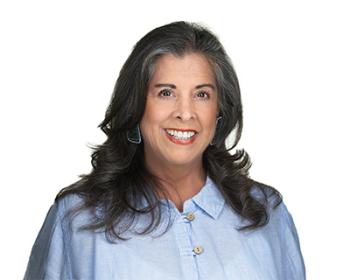Image Caption
Summary
Local Journalism Initiative Reporter
Windspeaker.com
A 2015 decision by Canada may have released the Catholic entities from their $25 million settlement for residential school survivors, but that doesn’t mean the Catholic corporation still can’t do something substantial, says Dr. Cynthia Wesley-Esquimaux, chair of the Governing Circle for the National Truth and Reconciliation Centre.
“Maybe it’s not going to be $25 million. Maybe it’s going to be the churches are going to say ‘in lieu of the money, maybe we can do something … about the Doctrine of Discovery’, because that was very much part of the discussion when the Pope was here,” said Wesley-Esquimaux.
On Aug. 20, the Canadian Press reported that Canada, under the Stephen Harper government, agreed to “forever discharge” the Catholic entities from the money owing to residential school survivors. Canada also agreed to pick up the Catholic legal fees.
A signed copy of a 2015 agreement was obtained by the Canadian Press through federal access-to-information laws.
It indicated that Canada decided not to appeal a 2015 court decision in which Justice Neil Gabrielson ruled the 2007 Indian Residential Schools Settlement Agreement (IRSSA) covered all the Catholic entities’ financial commitments in terms of “best efforts” in fundraising.
The IRSSA committed the church signatories—United, Presbyterian, Anglican, and 48 Catholic entities—to cash contributions, in-kind services and fundraising campaigns.
The Catholic entities were to establish a corporation that would contribute funds in three separate amounts: $29 million cash contribution for abuse claim compensations; $25 million for in-kind services over a maximum 10-year period; and “best efforts” to fundraise $25 million in a Canada-wide campaign.
The IRSSA stated that “for greater certainty, not raising $25 million (in the national fundraising campaign) shall not, in itself, be a condition of default.”
The IRSSA also tied the fundraising initiatives of the other church signatories to a percentage of the amount that the Catholic corporation raised.
“The obligations of the other three churches were structured in such a way as to tie part of our obligation to the outcome of the Roman Catholic fundraising,” said the Anglican Church of Canada in a 2016 message to members.
“If that fund-raising fell short of $11 million, the IRSSA intended that the funds be returned to the contributing entities…This was an outcome foreseen and provided for deliberately in the Settlement Agreement,” continued the statement.
To date only $4 million of the $25 million has been raised by the Catholic corporation.
Crown-Indigenous Relations Minister Marc Miller’s office issued a statement Aug. 19 saying the minister “committed to ensuring that the Catholic Church be held to account."
Miller’s office also stated that "the minister committed to understanding the circumstances and events that led the appeal to be dropped by the government of the day.”
In September 2021, the Canadian Conference of Catholic Bishops pledged to raise $30 million over five years, saying, in a statement, that the money was “a tangible expression of their commitment to walk with the Indigenous Peoples of this land along the pathway of hope, (so they) are making a nation-wide collective financial commitment to support healing and reconciliation initiatives for residential school survivors, their families, and their communities.”
The fundraising commitment by the CCCB followed the national apology the Canadian Bishops issued on Sept. 24, 2021.
Last month, Pope Francis also apologized when he began his “penitential pilgrimage” at Maskwacis in Alberta.
"I ask forgiveness, in particular, for the ways in which many members of the Church and of religious communities cooperated, not least through their indifference, in projects of cultural destruction and forced assimilation promoted by the governments of that time, which culminated in the system of residential schools," he said on July 25.
Wesley-Esquimaux doesn’t believe the recent news of the Catholic entities no longer being required to ante-up the full $25 million detracts from the Pope’s apology or visit.
“I think that the Pope timed it according to what was in the air, the need for this conversation to happen,” she said.
Wesley-Esquimaux, who is not Catholic, says her Catholic friends believe Pope Francis is the only Pope in the last three or four popes who could have “stepped away from that deep conservativeness, to protect everything papal” in order to make this apology.
However, the Holy See did not rescind the Doctrine of Discovery, despite calls to do so by Indigenous organizations like the Assembly of First Nations and a public demonstration during his visit. The doctrine allowed explorers to declare the land vacant or terra nullius and claim it.
Now Wesley-Esquimaux expects the conversation moving forward will be taken out of the public domain and will be happening within the Catholic church.
“The Catholic church itself is interested because it’s the Pope and their spiritual leader. I don’t think people, by and large, are going to be interested in the follow up of this. It would be nice if they were,” she said.
Local Journalism Initiative Reporters are supported by a financial contribution made by the Government of Canada.

